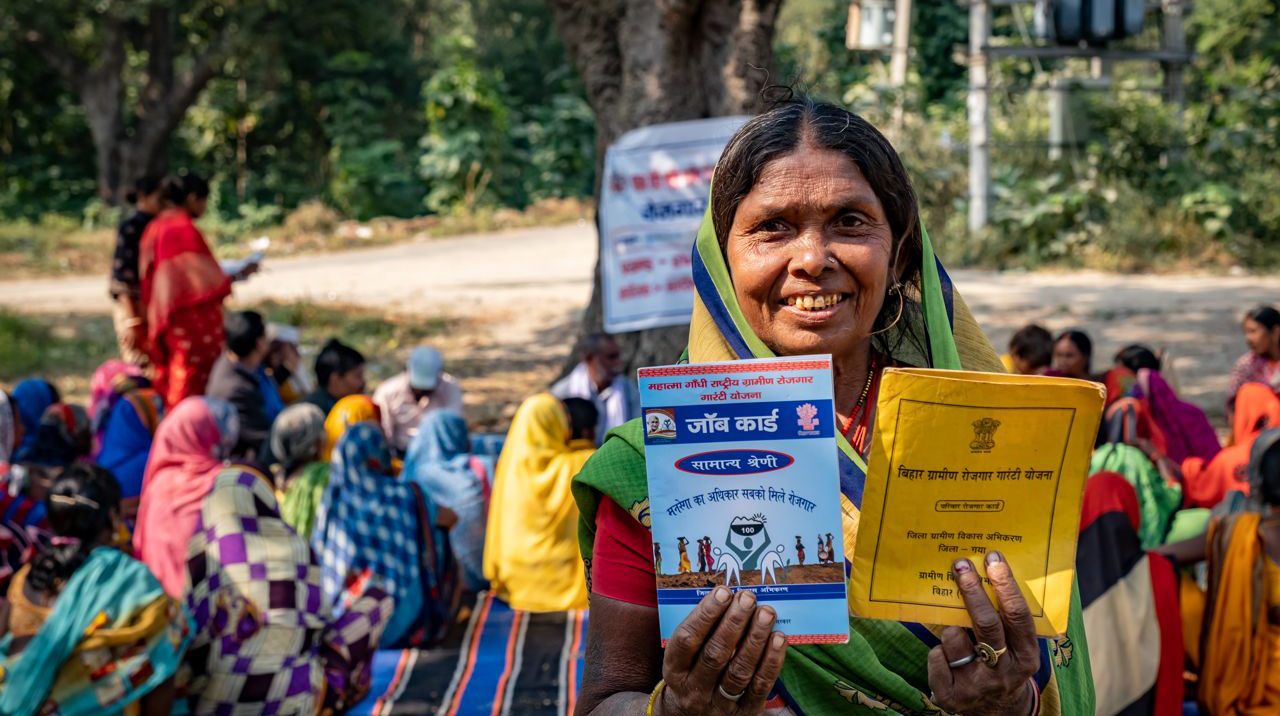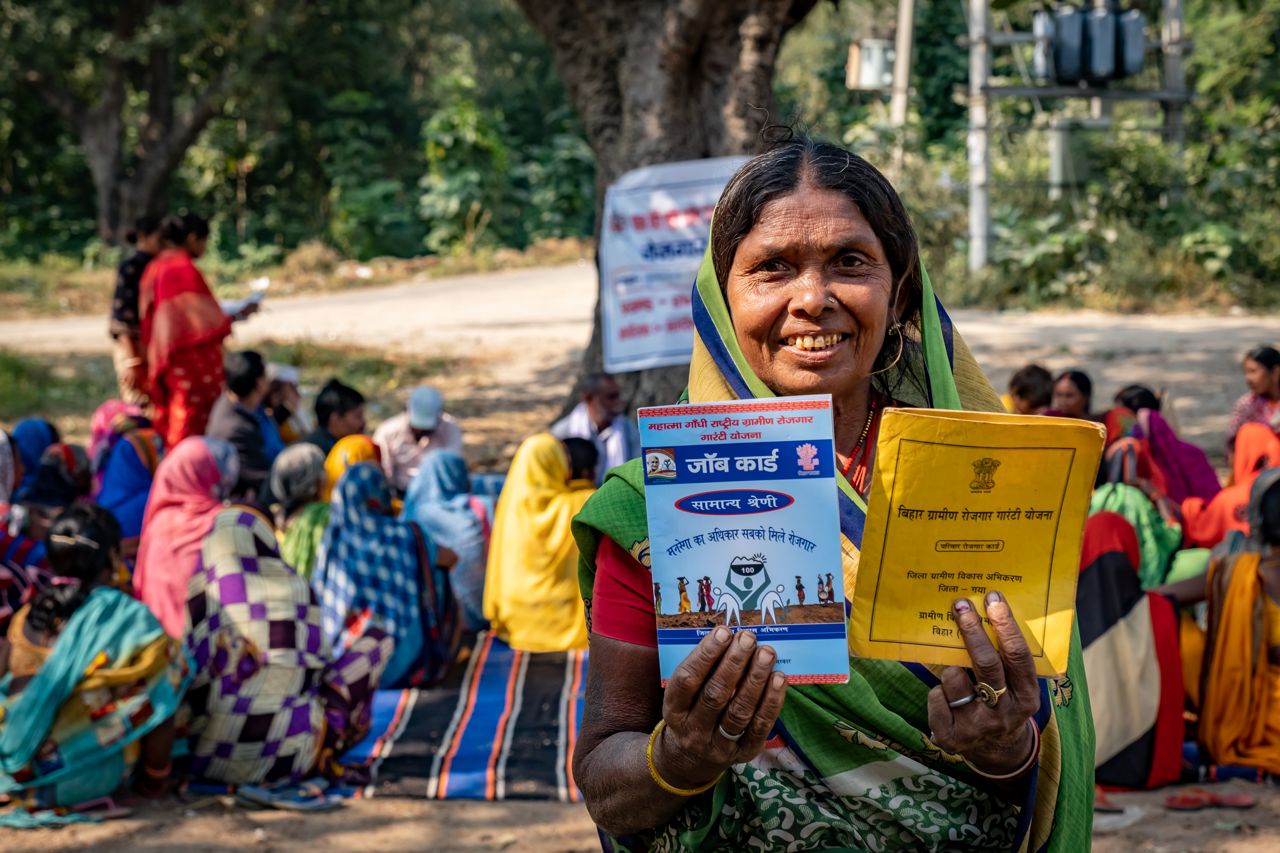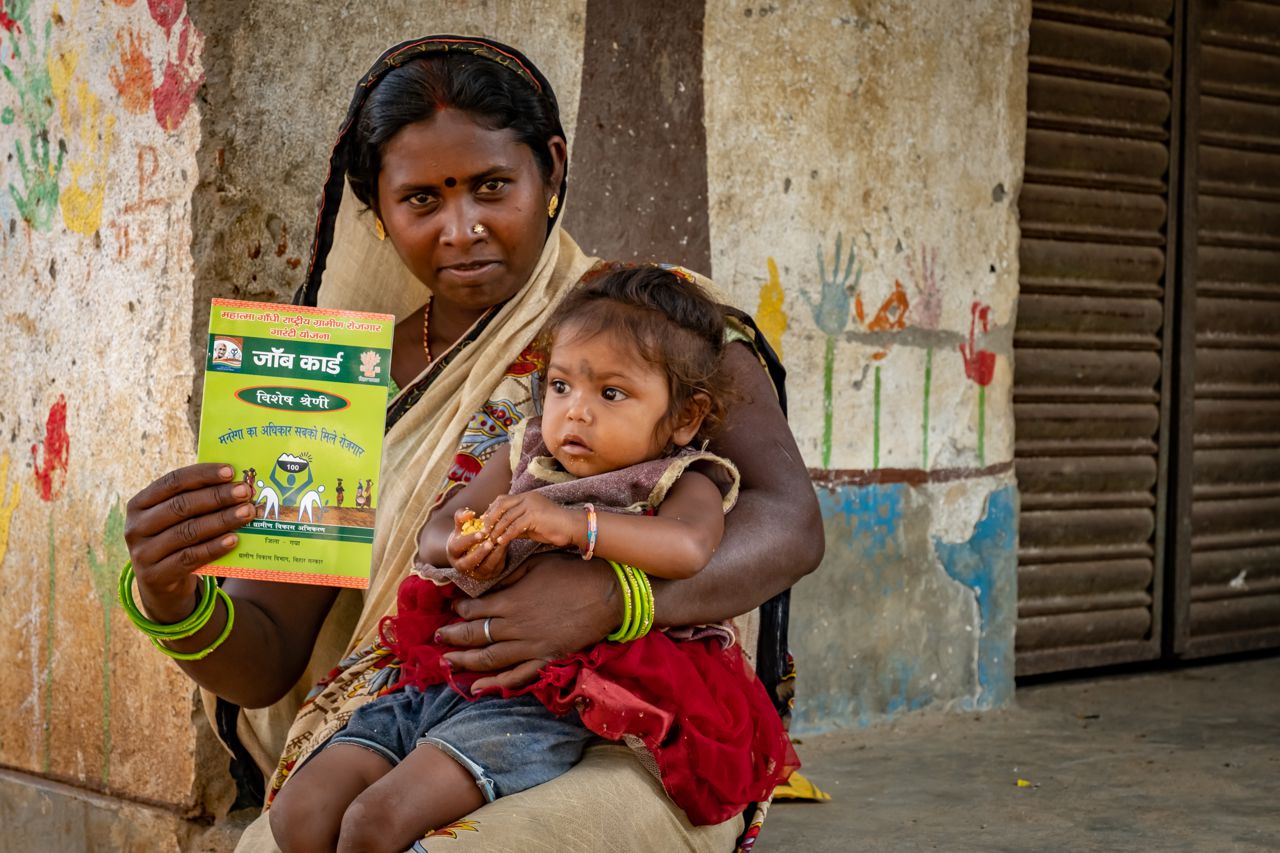SEEDS OF CHANGE: STRENGTHENING PLATFORMS FOR WOMEN PARTICIPATION AND EMPOWERMENT

 Availing her right to work through MGNREGA
Availing her right to work through MGNREGA
PCI India is providing Technical Assistance (TA) to Rural Development Department (RDD) in Bihar to advance women’s economic empowerment through social and economic convergence, supported by Bill and Melinda Gates Foundation (BMGF). The TA aims to improve women’s access to entitlements and facilitate safe avenues of economic empowerment provided by the state, along with increasing women’s agency to make and act on decisions and control resources. The TA focuses on development through the convergence of Mahatma Gandhi National Rural Employment Guarantee Scheme (MGNREGS) with Bihar Rural Livelihoods Promotion Society (JEEViKA).
Ground Realities
The Mahatma Gandhi Rural Employment Guarantee Act (MGNREGA) is a rights-based legislation aiming to enhance rural livelihood security by guaranteeing up to 100 days of employment every year to all rural households whose adult members desire unskilled work in public works projects. The Act mandates that MGNREGA Rozgar Diwas (Employment Guarantee Day) be organized at least once a month at Gram Panchayat level to raise awareness about the Act and to listen to concerns and suggestions. The TA field experience in project immersion blocks, namely, Jainagar (Madhubani) and Dobhi (Gaya), showed that the awareness in rural areas about MGNREGA entitlements was low, especially on how to get work. Demand for work is not met, especially during the lean agricultural season. This has created challenges for ground-level implementation and livelihood security for the poor, where it is needed the most. Further, it was found that Rozgar Diwas was not a regular activity at the GP level, which resulted in fewer opportunities for community participation in work planning, demand mobilisation, and grievance redressal. Also, female work participation in Rozgar Diwas was limited.
The Strategy and The Intervention
 Reducing exclusion by the MGNREGA Job
Reducing exclusion by the MGNREGA Job
Learning from MoRD-supported Cluster Facilitation Team (CFT) project implementation in Bihar showed that women’s mobilization for schemes and entitlements seemed to have facilitated their higher participation. We concluded after discussions with many stakeholders, including BRDS, JEEViKA, and JEEViKA-promoted Community-based Organizations, that if the Rozgar Diwas platform was activated and regularized, it would help increase women’s participation and community involvement in MGNREGA projects. Hence, a strategy has been adopted in both blocks, aiming to regularise Rozgar Diwas and strengthen convergence between MGNREGA (supply-side) and JEEViKA promoted CBOs (demand-side). The TA focuses on the operationalization of Rozgar Diwas Guidelines and strengthening of convergence effort and systems. The TA also felt the need for a Rozgar Diwas calendar, IEC activities, active participation from PRIs and SHGs/ CBOs and unified outcome monitoring at district and state levels.
Conclusion
Data informs that if the Rozgar Diwas is organized in consultation with SHGs/ CBOs, it promotes women’s participation and increases awareness among wage-seekers from women, SCs and STs and greater convergence between SRLM and MGNREGS. Additionally, the adherence to good governance practices and transparency in implementation has increased.
Authors:
Sonmani Choudhary, Senior Programme Manager – TA RDD
Ronnie Clive Francis, Manager – Communications & Knowledge Management
Editor:
Prasann Thatte, Director, Knowledge Management
